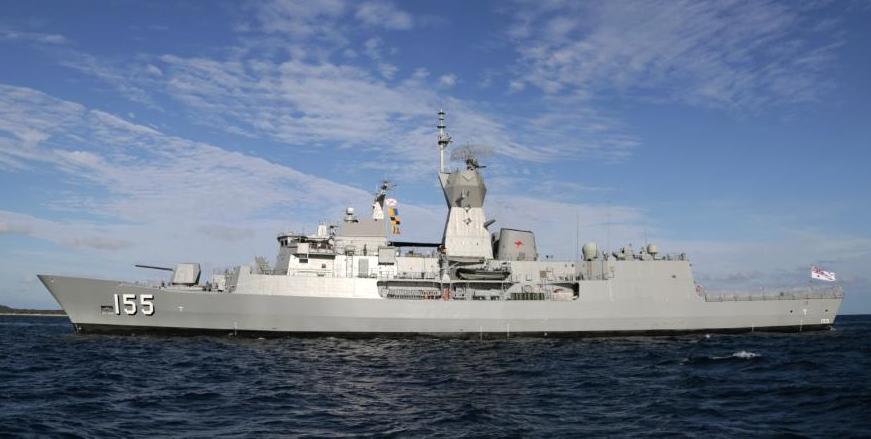IN THE MEDIA
Dislike of Trump is a foolish reason not to protect Australia’s interests in the Persian Gulf
September 20, 2019 | Colin Rubenstein

September 20, 2019 – An edited version of this article first appeared in the Adelaide Advertiser
Australia’s decision to contribute to the International Maritime Security Construct (IMSC) to ensure Freedom of Navigation in the Persian Gulf has elicited some hysteria about US President Donald Trump and false parallels to the Iraq War. A perfect example of this tendency was Michael McGuire’s opinion piece that appeared in The Advertiser last week (“Australia is in danger of not being so much an ally as a subordinate,” August 28).
McGuire alleged that Prime Minister Scott Morrison was “relying on, and endorsing the judgment, of US President Donald Trump” and deploying the navy to a region “made more dangerous by Trump’s decision to withdraw from an agreement that was working to curtail Iran’s nuclear capability.” The US, in this telling, is potentially dragging Australia into a disastrous war for no good reason.
Regardless of whether one supports President Trump or his policies towards Iran, the narrative painted by McGuire is false.
Firstly, Morrison’s decision on August 21 had absolutely nothing to do with relying on the judgement of the US President.
It is self-evidently in Australia’s interest to ensure security in the Strait of Hormuz, given that 15-16% of crude oil and 25-35% of refined oil destined for Australia travels through that strategic waterway. Moreover, there have been numerous bomb attacks on tankers and ship seizures there in recent months, all believed to have been orchestrated by Iran.
Contrary to what is being portrayed, the IMSC, or “Operation Sentinel,” as the Americans call it, is far from a novel mission: Australia has essentially been conducting it for decades under the name Operation MANITOU, Australia’s contribution to the US-led Combined Maritime Forces, or CMF, based in Bahrain. The CMF, as its former deputy commander stated in June, is a “coalition of 33 separate nations all working together to protect the free flow of commerce through some of the world’s busiest strategic choke points – the Strait of Hormuz, the Bab Al Mandeb Strait and the Suez Canal.” Assets are now being retasked to focus on the Strait because of Iranian piracy. The same ship that would have been deployed anyway under MANITOU will now ostensibly focus on escorting shipping through the Strait of Hormuz.
Meanwhile, the idea that Australians are being dragged by the US into a military confrontation with Iran is belied by every statement and action by both Trump and Morrison. Every single administration official from the President on down has asserted repeatedly that the US does not want war and is looking to de-escalate and negotiate a new, more robust agreement. For over a year, the Administration has offered meetings and negotiations with no preconditions, something Iran continues to reject.
Nor does the claim that everything was fine until the Trump Administration pulled out of the Joint Comprehensive Plan of Action (JCPOA) agreement bear the slightest scrutiny. The JPOCA was a fundamentally flawed agreement even on its own terms, which has provided only inadequate inspection of Iran’s “military sites” but will allow Iran to build a massive nuclear program once certain restrictions expire thanks to “sunset clauses”. Furthermore, it also removed restrictions on Iran’s ballistic missile programs and allowed Iran to continue researching advanced centrifuges which will exponentially speed up uranium enrichment. This is especially concerning in light of the Nuclear Archive and other intelligence exposed by Israel this year, which collectively suggests that not only is Iran not being forthcoming with the International Atomic Energy Agency (IAEA), but that it wishes to possibly restart its nuclear weapons program at some point in the future.
Indeed, just this week, it was reported that Iran is refusing to cooperate with the IAEA on inspections of a secret nuclear storage site revealed by Israeli Prime Minister Benjamin Netanyahu almost a year ago.
Meanwhile, the funds provided by the JCPOA allowed Iran to vastly increase its support for terrorist groups and efforts to destabilise all its neighbours, building up murderous proxy military forces in Iraq, Syria, Lebanon, Yemen, Afghanistan, Gaza and elsewhere.
Nor is this phenomenon of Iran and its proxies attacking civilian shipping and harassing allied military forces new, or remotely related to the JCPOA. The Iran-backed Houthis fired on civilian tankers and container ships in the Bab al-Mandab Strait, as well as on US warships, under the Obama Administration, while there were constant incidents from 2016 onwards in the Persian Gulf that occasionally resulted in US fire to ward off the Islamic Revolutionary Guard Corps (IRGC). Iran even captured and humiliated US sailors that it claimed had drifted into their territorial waters, and reportedly locked onto US and French aircraft carriers. All of this while the JCPOA was in force.
The US has not deployed many additional assets to the region, something one might expect if conflict had anything to do with the mission.
Similarly, Australia is merely tasking a frigate and surveillance crews to a region where they were due to be deployed regardless of the IMSC. Long before Trump became President, Australia maintained assets to protect its interests and maritime security in the Middle East, and it will continue to do so long after he’s gone.
This is not the Iraq War, and dislike of Trump would be a foolish reason not to protect Australia’s interests in maritime security and the free movement of energy in the region.
Dr. Colin Rubenstein is Executive Director of the Australia/Israeli & Jewish Affairs Council (AIJAC). Previously, he taught Middle East politics for many years.
Tags: Australia, IMSC, Iran, Persian Gulf, Terrorism





